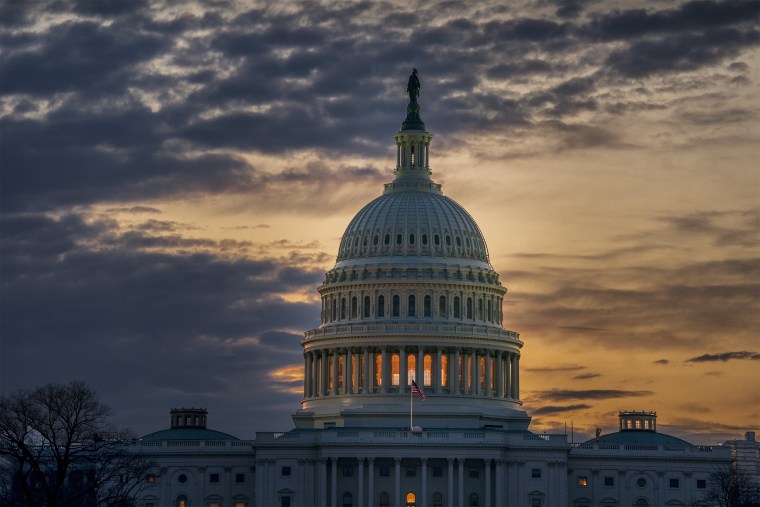The federal deficit is expected to balloon $809 billion more than previously thought due to legislative packages passed by Congress and signed into law by President Donald Trump, the nonpartisan Congressional Budget Office said in a report released Wednesday.
The agency increased its projections for deficits over the next decade — from $11.4 trillion to $12.2 trillion — in this updated version of its May budget forecast. The agency said the increase is largely driven by a two-year budget deal Trump signed into law last month that increased government spending and suspended the debt ceiling, which is the statutory limit on how much the government can borrow. The 2020 fiscal year begins Oct. 1.
The CBO's updated projection comes amid mounting fears of a weakening economy, heightened trade tensions and predictions of a recession. The prospect of an economic slowdown also prompted the Trump administration to consider implementing a payroll tax cut to boost the economy in the short term. "It is something that I'm thinking about," Trump told reporters Tuesday, but added, "We're very far from a recession."
On Wednesday, Trump seemed to dismiss the idea, telling reporters outside the White House, "We don't need it."
Over the next decade, the CBO said, federal deficits are projected to average 4.7 percent of gross domestic product, which would be a significant increase from the 2.9 percent of GDP that deficits have averaged over the past 50 years.
As a result of those deficits, the report noted, debt held by the public is projected to rise from 79 percent of gross domestic product to 95 percent over the 10-year period, its highest level since just after World War II.
"A range of developments, such as unexpected changes in international conditions, business confidence, or productivity growth, could make economic outcomes differ significantly from our projections. Prospective changes in trade policies add to the projections’ uncertainty," Phill Swagel, the agency's director. said in a statement on Wednesday.
However, Swagel said, the increase in its forecasts for deficits was partly offset by the agency's projections of interest rates. He also said the agency raised its projections of economic growth in the near term.
The Treasury Department is expected to borrow more than $1 trillion for the second straight year, according to borrowing estimates released by the department earlier this year.

